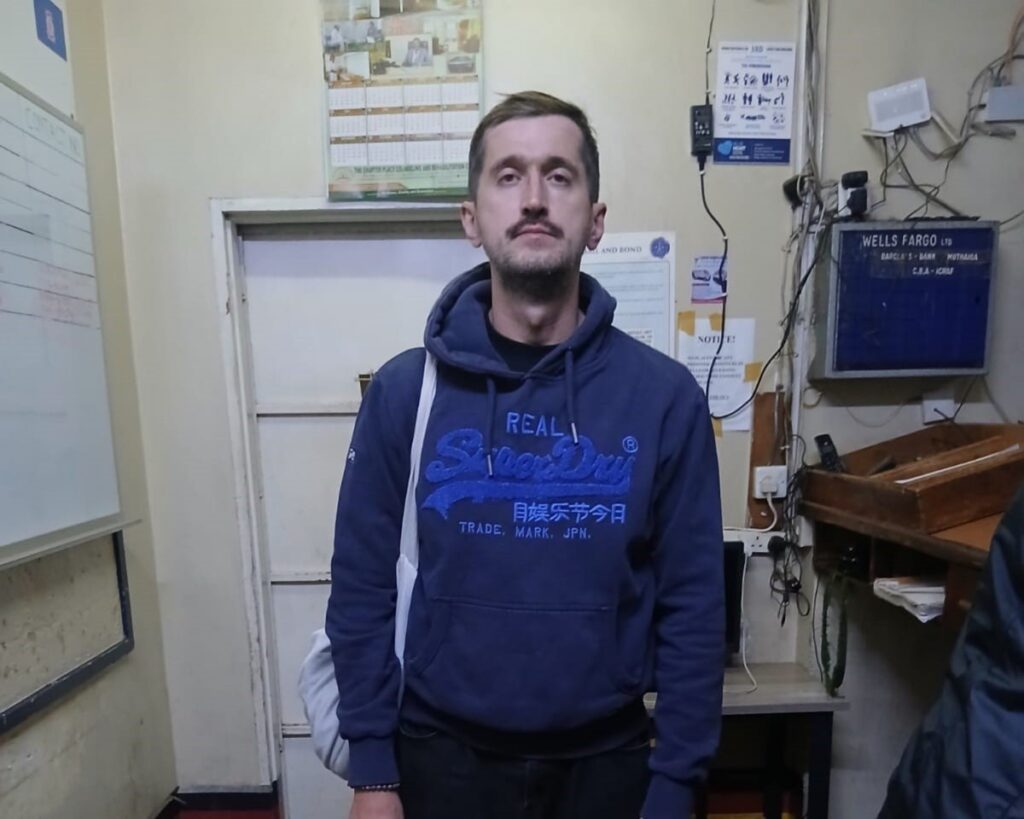Russia’s war on Ukraine has opened a dangerous front in Africa, as the Kremlin is exploiting and tricking job-seeking civilians into being part of its war machine.
Kenyan authorities recently broke up a human trafficking ring accused of targeting vulnerable citizens with fake job opportunities in order to lure them to Russia, where they would be forced to fight against Ukraine. On September 24, the Transnational Organized Crime Unit of Kenya’s Directorate of Criminal Investigations found 21 Kenyan men who were “awaiting processing to Russia” at Great Wall Apartments, less than 20 kilometers from Jomo Kenyatta International Airport in Nairobi.
“We were preparing to leave the country for Russia when the detectives came knocking on our doors. We were actually signing documents,” one victim told Nairobi-based media outlet Kahawa Tungu. A father of three from Kiambu County, he said he was struggling financially and was lured by a promised monthly salary of more than $1,900.
“A friend told me that there was a well-paying job in Russia,” he said. “I was given the number of the person organizing the movement. I talked to him, and he told me what to do and the process to follow.”
Detectives arrested Kenyan Edward Kamau Gituku, whom they accused of coordinating the travel to Russia on various dates in September and October. They recovered documents linking Gituku and a company called Global Face Human Resource Ltd. to another company called Ecopillars Manpower Ltd. for a one-year partnership to recruit, screen and send Kenyans to Russia.
Victims told police that they signed agreements to pay between $13,000 and $18,000 to an unnamed overseas employment agency for visas, travel, accommodations and other logistics.
“Those who fail to pay within 35 days are charged a 1% daily penalty,” Kenyan investigators said. Some of the victims indicated that they had already paid deposits of as much as $774.
Hours after the raid, the investigation led detectives in Nairobi to arrest Mikhail Lyapin, who local media reported was an employee of the Russian Embassy in Nairobi. A source told Kenyan newspaper The Standard that Lyapin was “in the process of being deported.” The Russian embassy denies it has ties to Lyapin and insists he is a businessman.
“Kenyans were being duped to pay huge amounts to secure employment in Russia but end up fighting,” Kenyan investigators said. “Some are reported to be killed, and those who survive bear wounds of torture or are psychologically disturbed.”
One Kenyan who survived the war, 36-year-old track and field athlete Evans Kibet, was reported captured on September 17 by Ukrainian forces. Kibet said he was tricked into joining the Russian army. He explained that a sports agent offered him and three other Kenyans a fully funded tourist visit to Saint Petersburg. After their two-week tourist visa expired, the group’s guide persuaded them to stay and work in Russia.
“He came in the evening with documents written in Russian,” Kibet said in a video interview. “I didn’t know it was a military job. He told me to sign and took my passport and phone, and that is how everything went wrong.”
Kibet said he was taken to a military camp where he was told that he had to serve or he would be shot. After a week of rudimentary weapons training, Kibet said he escaped during his first combat mission by fleeing into a forest in the Kharkiv region and removing his uniform. He wandered for two days before he found and surrendered to a Ukrainian patrol.
Kenya has launched an investigation, according to Foreign Affairs Principal Secretary Korir Sing’Oei, who said that he is working to verify Kibet’s claims and gather more information from the Kenyan Embassy in Moscow.
“We are keenly following information on three or four Kenyans allegedly trafficked to Russia and currently held as POWs by Ukraine,” he said, according to Nigerian news website Business Insider Africa.

